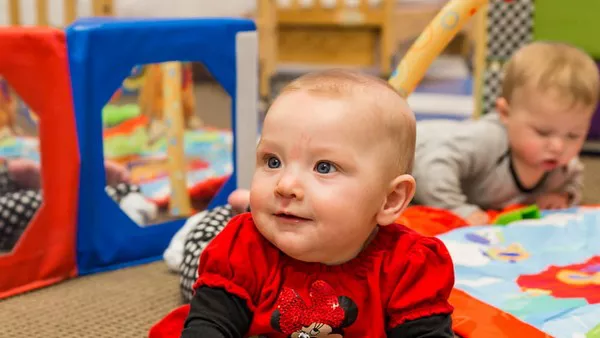Welcoming a newborn into your family is a joyous occasion, and with this new addition, there are several aspects of daily life that need to be adjusted to ensure the utmost care and comfort for your little one. One important consideration is how to care for their clothes. Should you dry newborn clothes? In this article, we will explore this question in-depth, providing you with essential information and practical tips to help you make the best choices for your baby’s clothing care.
1. Air-Drying vs. Machine Drying
When it comes to drying newborn clothes, one of the first decisions you’ll need to make is whether to opt for air-drying or machine drying. Each method has its advantages and considerations.
Air-Drying:
a. Gentle on Fabrics: Air-drying is often gentler on delicate baby clothes. It prevents excessive wear and tear, which can be especially important for items with snaps, buttons, or lace.
b. Energy-Efficient: It’s an environmentally friendly and cost-effective choice since it doesn’t consume electricity like a dryer.
c. Minimizes Shrinkage: Air-drying helps reduce the risk of clothes shrinking, which can be a concern with certain materials.
Machine Drying:
a. Convenience: Using a dryer is convenient, especially during rainy or cold seasons when outdoor drying is not an option.
b. Sanitization: Dryers can effectively kill germs and bacteria that may be present on baby clothes, providing an extra layer of hygiene.
c. Time-Saving: Drying in a machine is generally faster than air-drying, which can be crucial for busy parents.
2. Baby Laundry Tips
Proper care starts with the washing process, which impacts how you’ll dry your newborn’s clothes.
a. Use Mild Detergents: Opt for gentle, hypoallergenic detergents designed for baby clothes. These are less likely to cause skin irritation.
b. Separate Clothing: Keep baby clothes separate from the rest of the family’s laundry to prevent potential cross-contamination.
c. Pre-Treat Stains: Treat any stains promptly to prevent them from setting in. Follow the manufacturer’s care instructions.
d. Avoid Fabric Softeners: Skip fabric softeners, as they can contain chemicals that may irritate your baby’s sensitive skin.
e. Fasten Snaps and Zippers: Before washing, ensure all snaps, buttons, and zippers are fastened to prevent them from snagging other clothes.
3. Infant Clothing Care
Newborns have delicate skin, and their clothing needs special care to keep them comfortable.
a. Opt for Natural Fabrics: Choose clothing made from natural, breathable fabrics like cotton. These materials are gentle on the skin and allow it to breathe.
b. Wash Before Use: Always wash new baby clothes before your little one wears them. This removes any residual chemicals or irritants from the manufacturing process.
c. Avoid Overloading: Don’t overcrowd the washing machine. Clothes need space to agitate and get clean thoroughly.
d. Check Labels: Pay attention to care labels on clothing for specific instructions on washing and drying.
4. How to Preserve Baby Clothes
Preserving your baby’s clothes can be essential, especially if you plan to use them for future siblings or as keepsakes.
a. Storage: Store baby clothes in a clean, dry place, away from direct sunlight, to prevent fading.
b. Size Organization: Sort clothes by size to make it easier to locate the right garments as your baby grows.
c. Vacuum-Sealed Bags: Consider using vacuum-sealed bags to save space and protect clothes from dust and moisture.
d. Repair Damages: Mend any small tears or loose seams promptly to extend the life of clothing.
Conclusion
Caring for your newborn’s clothes is an essential aspect of parenting, ensuring that your baby is comfortable, safe, and healthy. Whether you choose to air-dry or machine dry their clothes, following these guidelines will help you maintain their clothing’s quality and keep your little one cozy and content. Remember, the key is gentle care, mild detergents, and attention to detail in every step of the laundry process. Your baby’s comfort and well-being are paramount, and proper clothing care plays a significant role in achieving that.


